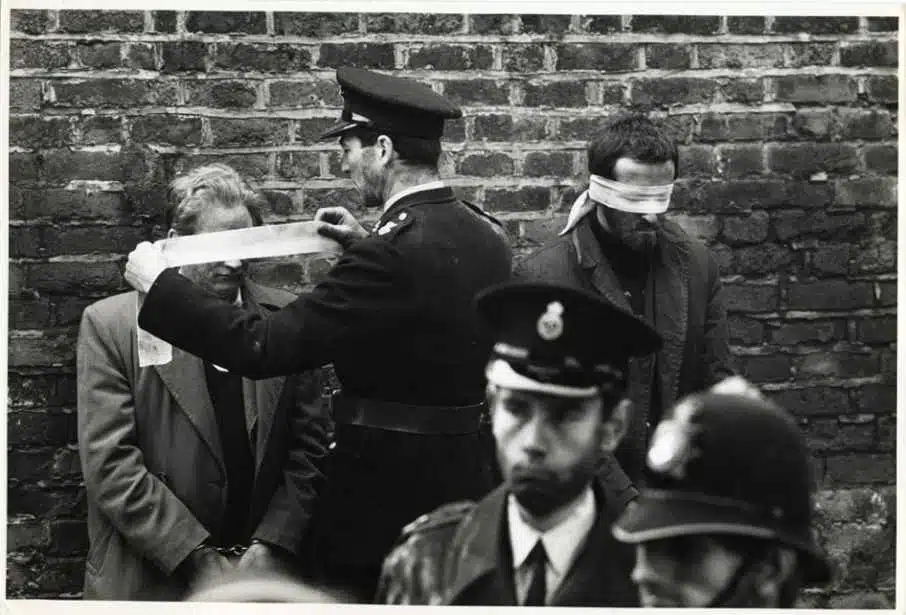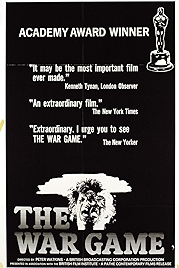A movie for every day of the year – a good one
21 November
Einstein publishes his mass/energy equation, 1905
On this day in 1905, his annus mirabilis, Albert Einstein published a paper in the Annalen Der Physik (Annals of Physics). Together with his earlier three papers that year, on Photoelectric Effect, Brownian motion and Special Relativity, his 1905 papers laid the foundation of modern physics. The November paper’s title was Does the Inertia of a Body Depend Upon Its Energy Content? In it Einstein suggested that mass and energy were the same thing, expressing the relationship between the two thus: “If a body gives off the energy in the form of radiation, its mass diminishes by L/V2” – where L stands for energy and V stands for the speed of light. This equation went through various permutations at the hands of various scientists, always with the intention of making it more elegant rather than changing its fundamental meaning, until Einstein himself returned to it after the Second World War and expressed it as E=mc2. Whichever way you want to write it, the equation suggests that for any given mass, there is a gigantic amount of energy contained within. It suggests that mass is, in essence, “solid” energy. Einstein was not the first scientist to suggest that mass and energy might have some sort of relationship, but he was the first to suggest that the relationship was constant, and that the missing part of the equation – the bit that would give a precise answer no matter what amount of mass or what material (a pint of milk, a sack of coal, or a Toyota Corolla) – was the speed of light multiplied by itself. His paper was positing that this relationship was universal and fundamental. Einstein theorised this relationship before the discovery of basic atomic particles, such as the neutron, and his theory wasn’t capable of being verified until 1932, at which point Einstein was vindicated. One gram of mass (milk, coal or Corollas) is equivalent to 89.0 terajoules of energy, roughly 568,000 US gallons of gasoline. Of course unlocking that energy is a different problem altogether, one nuclear scientists set to work on almost immediately.
The War Game (1965, dir: Peter Watkins)
A mock-documentary made for the BBC in 1965, The War Game takes the most likely trigger point of the day – increasing Chinese involvement in the Vietnam War – then quickly escalates it to the point of war between the US and USSR. A limited nuclear exchange takes place, in Europe. The cameras of Peter Watkins then take up the story in the United Kingdom, where a “small” bomb has missed its target, but has still wreaked awful havoc on the South East flank of London, in Rochester, Kent. In grainy newsreel which was entirely the way TV reports looked back then, we watch firefighters fail to cope with the firestorm, doctors failing to cope with the number of casualties, people who are too seriously injured being left to die without palliative care of any sort. There just aren’t enough drugs or medical people to go round. Corpses are piled high and burned. The army is shooting looters. It is a picture of a society, and a civilisation, as it collapses. Deemed too powerful for public taste, and too critical of government unpreparedness (while pointing out that preparation was not even possible) The War Game was withdrawn from the TV schedules but went on to win the Academy Award for Best Documentary that year. Shot handheld in black and white, only 50 minutes long – it had been made for the Wednesday Play slot (home of other “awkward” talents such as Ken Loach and Dennis Potter) – and was made without any “names” and barely any professional actors (though it used the voice of newsreader Michael Aspel to good effect). It resurfaced in the UK in the mid-1980s, when worries over nuclear war were again rife. It’s a powerful work even today.
Why Watch?
- A regular on “best British TV programme” ever made lists
- The Academy Award for Documentary
- A key work of the mock documentary genre
- Based on actual happenings in Hiroshima and the firestorm cities of Hamburg and Dresden
The War Game – at Amazon
I am an Amazon affiliate
© Steve Morrissey 2013

